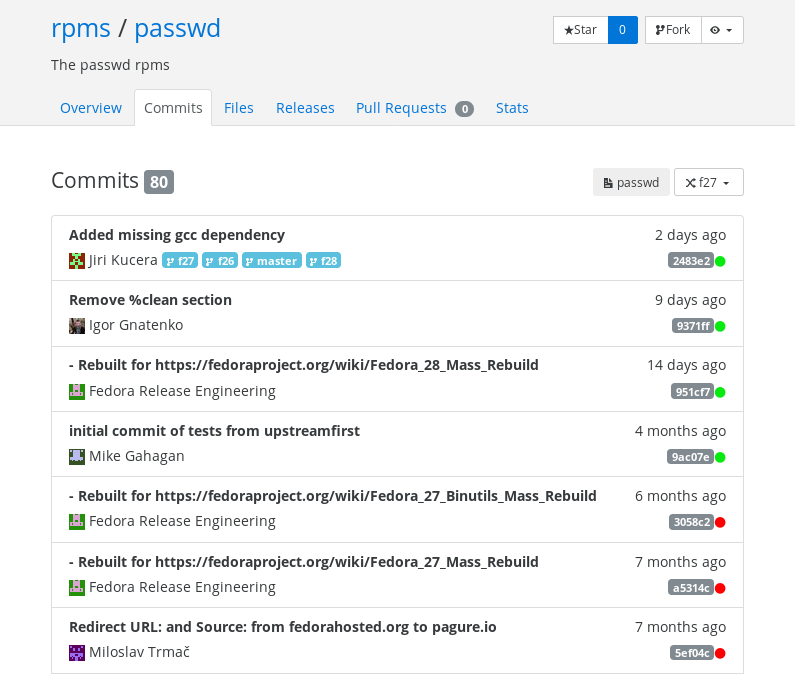< CI
mNo edit summary |
(Instructions how to rerun tests) |
||
| Line 10: | Line 10: | ||
** build pipeline - executes package tests for all non-scratch koji builds for all active Fedora releases and Rawhide | ** build pipeline - executes package tests for all non-scratch koji builds for all active Fedora releases and Rawhide | ||
** pull-request pipeline - executes package tests on a pull-request to [https://src.fedoraproject.org/rpms packages dist-git] to all active branches and master | ** pull-request pipeline - executes package tests on a pull-request to [https://src.fedoraproject.org/rpms packages dist-git] to all active branches and master | ||
In order to manually create a new job in the pipeline (e.g. to execute the tests again because of an infrastructure error) add the following comment to the pull request: | |||
[citest] | |||
= Links = | = Links = | ||
Revision as of 10:39, 20 July 2018
The testing Pipeline detects tests for enabled packages, executes the test coverage and gathers the results.
Instances
There are several CI pipelines enabled in the CentoOS Jenkins:
- Atomic Host - for selected packages (trigger on commit to master)
- Fedora
- build pipeline - executes package tests for all non-scratch koji builds for all active Fedora releases and Rawhide
- pull-request pipeline - executes package tests on a pull-request to packages dist-git to all active branches and master
In order to manually create a new job in the pipeline (e.g. to execute the tests again because of an infrastructure error) add the following comment to the pull request:
[citest]
Links
To learn more about the pipeline visit following links:
- CI Pipeline Architecture and Design
- Detailed pipeline description
- Build options and ideas
- Upstream open-source project integration
- Fedora requirements for CI and CD
- CI-Pipeline instance in Centos CI
Examples
Testing results appear as green or red dots directly in the Pagure interface. Clicking on them will bring you to result details.

